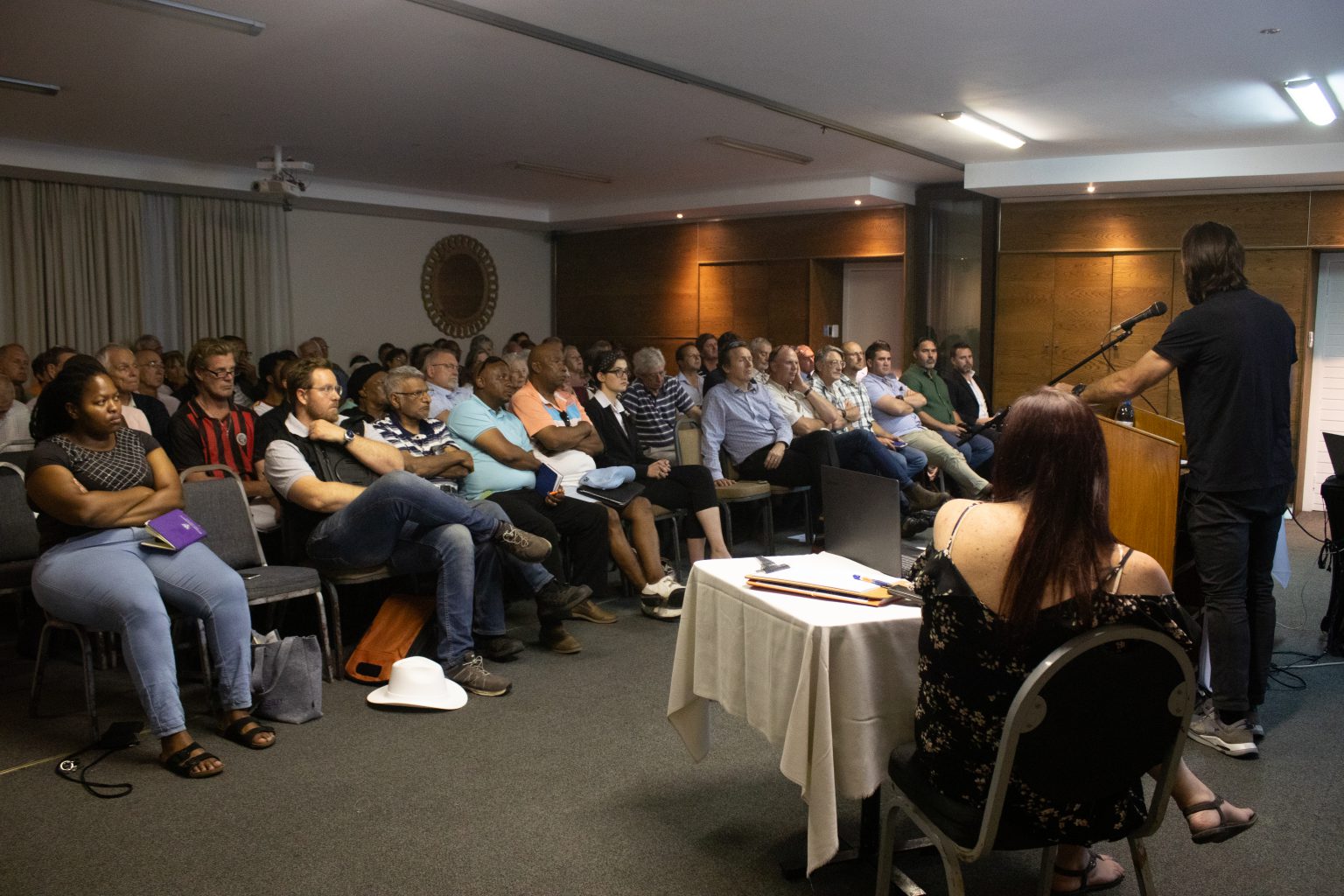By Khanyisa Khenese
Makhanda’s many problems – water and electricity outages, burning dumps, potholes and the generally parlous state of service delivery – are not unique. It is the story of South Africa.
That was the message from Derek Light, a civic leader and attorney from Graaff Reinet, to a meeting of the Makana Reconstruction Indaba last week.
But citizens can help to change this narrative.
Light cited numerous achievements in his community, Graaff Reinet, which were made possible through collaboration and working together as a community.
“We live in an incredible country with beautiful, diversified, highly skilled people with something to contribute. It is up to us as people to see those challenges and do something about them,” Light said.
Despite having national, provincial, and local governments in South Africa’s democracy, it is at a local government that the decisions that are taken most profoundly impact people, their livelihoods, and the environment.
Sadly, all municipalities are financially constrained and lack the resources to do their work, he said. “Over 90% of the municipalities are bankrupt, and they cannot get clean audits, and there are different reasons for that. The central government is failing the municipalities; they cannot meet their constitutional obligations, and they don’t have the resources to do so.”
Brin Brody, an attorney of Wheeldon Rushmore & Cole Inc., hosted the Makana Reconstruction Indaba meeting, aimed at rebuilding, improving, and seeking solutions for issues plaguing Makana.
Brody said water and electricity outages, potholes, burning dumps and the general municipal malaise had led to the shutting of many businesses and the severe downturn of the local economy in Makhanda.
“All my properties here have devalued by half. The challenges are affecting everybody. You can walk around this town; you will see that there are far fewer businesses now than we had 15 years back,” he said.
“The value of properties in Port Elizabeth has declined; the same thing is happening here in Grahamstown. Graaff Reinet is experiencing the opposite, even in depressing economic times the market value of properties is stable, and it is perceived to be a healthy and safe environment that people from the outside recognize as valuable.”
He advised the community to venture into an agreement with the municipality and make a business plan that will contain information on how they plan to rebuild Makhanda, make industrial power networks, and provide solutions to renewable energies and water waste systems.
Another guest, NJ Bouwer, an executive of NuWater Systems, a water treatment solution company in Cape Town, said his company made industrial power networks and provided solutions to renewable energies and water waste systems, especially in municipalities. They do this to ensure that involvement between civil service and the public sector remains for the benefit of the public good.
“Often there is a lack of understanding, education, and training to properly maintain and use these systems sufficiently, so our company brings trained people and ensures that the municipality networks are maintained and looked after even after implementing our solutions”, he said.
However, he said that to do the work, they need a funder who will provide them with capital to build the infrastructure so that they can offer goods and services for a certain period.
“Different communities afford different things, and if we identify that not one size fits all, certain things fit for certain purposes. If you want to reduce pumping costs, we can establish treatment systems in areas where they can be used, and we make micro-networks in those areas to deliver services to those people,” he said.
Makhanda loses much of its expensively-pumped water to leaks. Bouwer said some companies had technologies that could detect and fix underground leaks.
“There are mechanisms within the government frameworks to solve these issues and solve them properly while creating employment, trying to educate people and providing skills and upliftment.”


